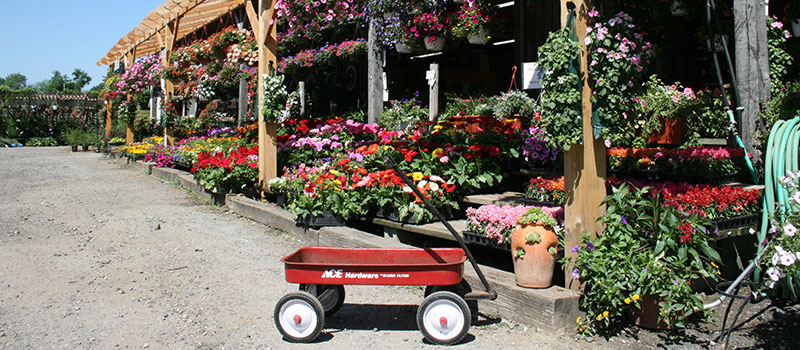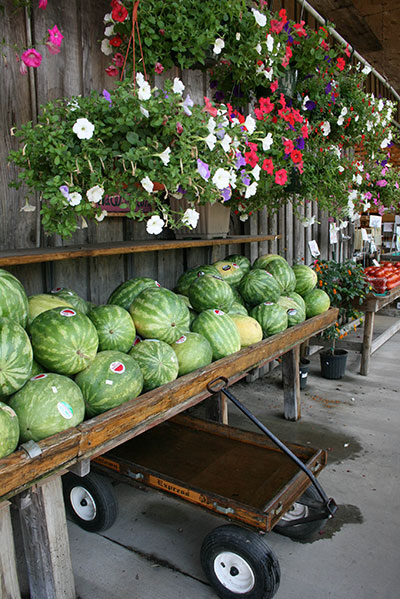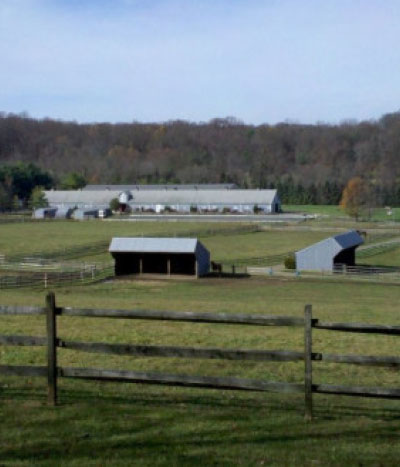A farm stand is an example of a secondary farm business.
How it Works
Many farmers in Chester County rely upon secondary (also referred to as supplemental or accessory) businesses to supplement their farm income, diversify risk, and bring the next generation into the current operation. (To successfully transfer agricultural operations, farm businesses often need to support two or more generations concurrently.)
There are many types of secondary farm businesses. Some are agricultural in nature, such as "agritainment" (e.g., corn mazes and hay rides) or processing and/or selling products grown on the farm. Some are more tangential to farming, such as welding and machine or woodworking shops. Some are seasonal, such as pick-your-own pumpkins, and some are year-round like winery tasting rooms. These businesses can occur in rural, suburban or near urban areas.
While municipalities may choose not to regulate farm businesses, those that do can establish parameters through zoning regulations. Some municipalities choose to allow secondary farm businesses by-right, relying upon general or performance regulations to address common concerns such as signage, traffic, parking, and hours of operation. Others may feel compelled to regulate these businesses more stringently, through conditional use or special exception, because of their scale or anticipated impact.
Some municipalities choose to allow secondary farm businesses by-right, relying upon general or performance regulations to address common concerns such as signage, traffic, parking, and hours of operation. Others may feel compelled to regulate these businesses more stringently, through conditional use or special exception, because of their scale or anticipated impact.
Benefits
Farmland and Soil Conservation
Successful farm operations, whether permanently eased or not, retain farmland and agricultural soils.
Community Resilience
Municipal policies can demonstrate the municipality's commitment to preserving the agricultural industry.
Local Economy Contributions
Farmers that can conduct secondary farm businesses and benefit from additional income are better able to maintain the primary farm operation. Doing so allows the operation to contribute even more to the local economy directly and through pass-through spending.
Agricultural Stability
Secondary farm businesses also allow farmers to diversify and manage risk, and bring the next generation onto the farm. This helps stabilize the agricultural industry in the region.
Consumer Outreach
Secondary farm businesses can be a way of helping residents connect with local farmers and the agricultural industry.
Municipalities should consider the character of their agricultural areas and determine what kind of zoning regulation would be most appropriate.
Get Started
A municipality should first establish a policy foundation for regulating secondary farm businesses in its comprehensive plan. Such policies may encourage flexibility in local regulations to allow farm operations to respond to changes in industry practices, conservation requirements, and emerging technologies.
A municipality can then use these policies as the basis for creating zoning regulations to implement its goals and objectives. The regulations can encourage accessory farm businesses of all types, with additional regulations to ensure appropriate size, scope, and location. For example, some municipalities limit the amount of prime-agricultural soils that can be disturbed or removed by the secondary farm business, or limit the size of buildings, hours of operation, and the number of non-family employees. Minimum setbacks from adjacent non-agricultural activities may be appropriate. Some municipalities require the business to receive an annual permit after an inspection. As with any zoning provision, the municipality should ensure that its regulations can be efficiently enforced.
Considerations
Scale
Accessory farm businesses should not grow so large as to dominate the primary farm operation or adversely affect nearby properties.
Traffic and Noise
Secondary farm businesses can generate additional traffic and noise, which could disturb neighbors.
Signage
Signs could be erected that are out of character with the area; for example, there could be too many, or they could be too big, or improperly located.
Parking
Depending on the scale and type of a secondary farm business, it may require additional parking. Additional parking areas should not create circulation problems.
Scale of Use and Season
Some seasonal activities, such as corn mazes, or haunted hay rides, may create unusually high levels of traffic and may require specific regulations to address potential conflicts with adjacent areas. Such regulations could include traffic control measures, limits on hours of operation, and noise mitigation.
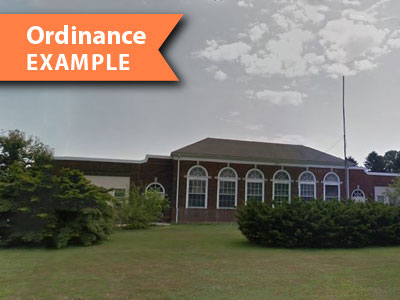
Examples
West Fallowfield Township
West Fallowfield Township permits a range of accessory farm activities in its zoning ordinance, including kennels, commercial stables, garage storage of commercial vehicles, and agricultural research facilities.
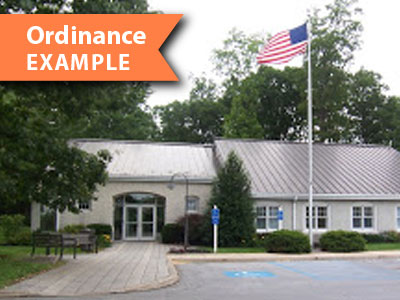
West Bradford Township
West Bradford Township allows for a variety of ways to sell farm products including from portable stands or permanent buildings, as long as 50 percent of products sold are produced on-site.
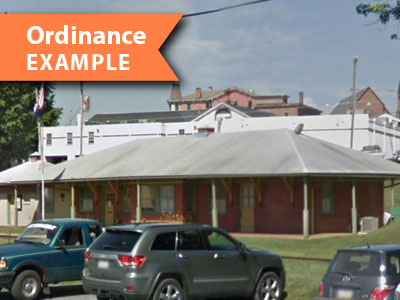
Lower Oxford Township
Lower Oxford Township allows "Family Farm Related Business or School," with accommodations for Plain Sect schools.
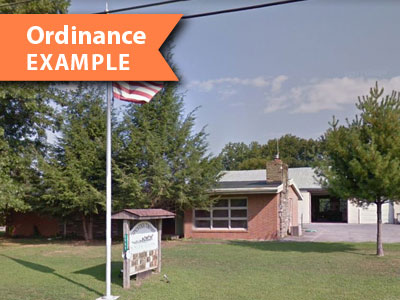
Conestoga Township
Conestoga Township in Lancaster County includes opportunities for the sale of farm products, farm-based agritainment, and other agriculture-related commercial activities.


